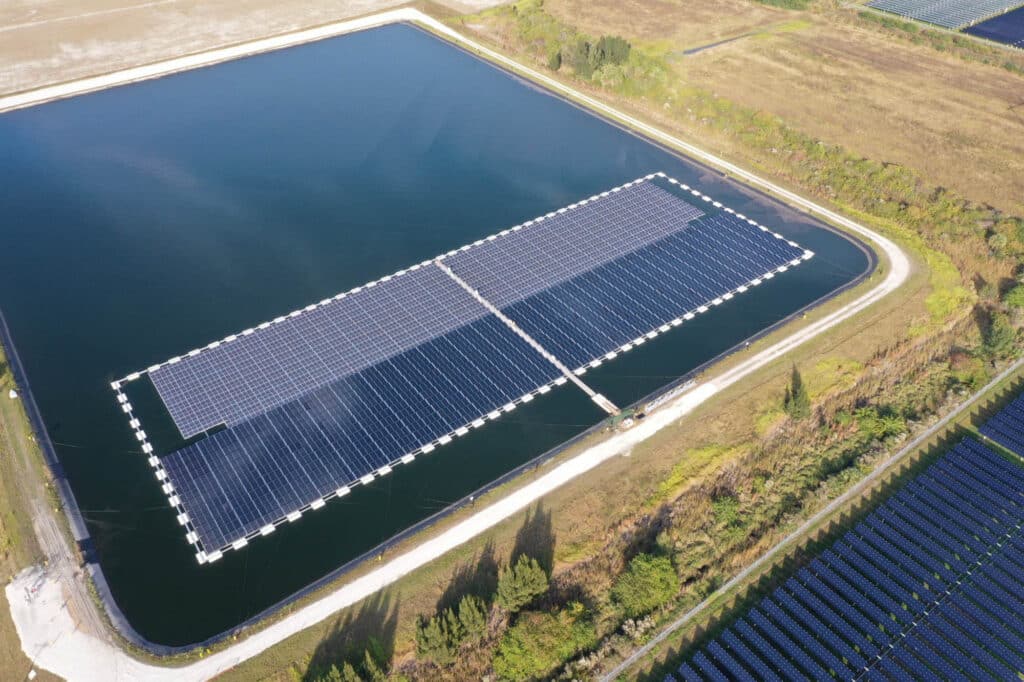In a world where the sustainability of our natural resources is increasingly threatened, it’s essential to highlight the positive impact individuals and industries can have on our precious water resources. While concerns about water scarcity and pollution loom large, innovative solutions are emerging that offer hope for a brighter future. What is one way people positively affect water resources? Water is life, but it’s also a precious resource that is being threatened and we need to preserve it.
What is One Way People Positively Affect Water Resources?
One way we can positively impact water resources is through a surprising innovation, floating solar. These aren’t your typical rooftop or ground-mounted panels. Floating solar panels are exactly what they sound like – solar panels that rest on floating platforms on top of bodies of water such as lakes, reservoirs, and even wastewater treatment ponds. This might seem like an odd fit, but it turns out to be a win-win for both energy production and water conservation, offering good energy solutions.
Traditional solar farms gobble up valuable land. Floating panels, however, utilize unused surfaces which is especially beneficial in densely populated areas where land is scarce. On larger reservoirs and lakes, they can work in unison with recreational uses by enhancing fish populations while only using separate small sections of the water surface, FSPV only takes about 1 acre of water surface for 1MW of electricity generation.
Surprise! Those panels act like a giant shade cloth, reducing water evaporation, adding another peice of good energy solutions. This is a big deal in areas facing drought conditions. Studies show that floating solar panels can significantly reduce evaporation rates, helping to conserve this vital resource.
Harmonizing Energy and Ecology: Floating Solar’s Dual Impact on Aquatic Ecosystems
Sunlight heating up water can disrupt aquatic ecosystems. Floating solar panels help keep the water cooler, creating a more stable environment for fish and other aquatic life. Some floating solar systems can even be combined with hydropower plants, creating a hybrid renewable energy source while using existing infrastructure and transmission lines. This increases efficiency and reduces our reliance on fossil fuels.
The synergy between floating solar and water bodies extends beyond simple energy production. By covering the surface of reservoirs and ponds, these solar arrays help prevent algae growth and maintain water quality. The shading effect reduces the amount of sunlight penetrating the water, thereby inhibiting the photosynthesis process that fuels algal blooms. As a result, aquatic habitats remain healthier, supporting biodiversity and preserving the natural beauty of these waterways.
Perhaps most importantly, the adoption of floating solar represents a paradigm shift in our approach to sustainability. It exemplifies the power of human ingenuity to harness renewable resources in harmony with nature, rather than at its expense. By embracing innovative solutions like floating solar, we can forge a path towards a more resilient and sustainable future for generations to come.
Navigating Challenges, Embracing Potential: Embracing Floating Solar for a Sustainable Tomorrow
Of course, in some areas, there may be challenges to consider, and the long-term ecological impacts on specific water bodies need to be carefully studied. But as the technology matures and the benefits become clearer, floating solar panels are poised to play a significant role in our sustainable future.
So, the next time you see a shimmering expanse of solar panels on a lake or reservoir, remember – it’s not just about clean energy, it’s about protecting our precious water resources too. If you’re looking for a floating solar solution contact AccuSolar the leader in U.S. designed and manufactured Floating Solar PV systems today!





